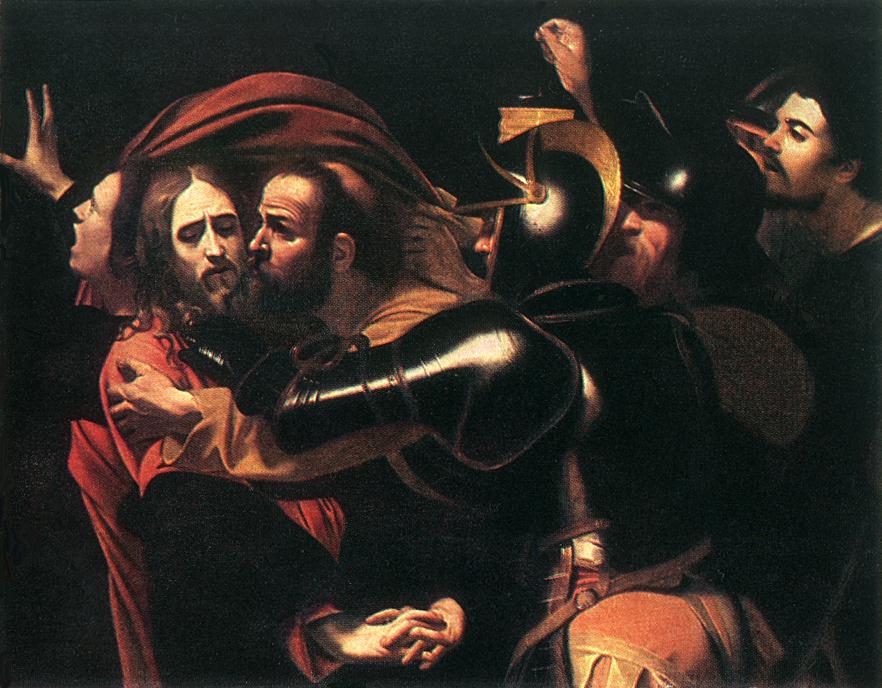Description
Caravaggio's painting The Taking of Christ is a masterpiece that has captivated art lovers since its creation in 1602. Caravaggio's artistic style, known as Caravaggism, is characterized by the use of the chiaroscuro technique, consisting of in the use of strong contrasts between light and shadow to create a sense of depth and realism.
The composition of the painting is impressive, with a group of figures that appear to be in a state of chaos and confusion. Judas, the traitor, is in the center of the scene, while Jesus, with a serene expression, is taken by the Roman soldiers. The tension in the scene is palpable, making the play all the more powerful.
The color used in the painting is sober and dark, reflecting the drama of the scene. Shades of brown and black predominate in the work, which emphasizes the darkness and the betrayal that is taking place.
The story behind the painting is fascinating. It is believed to have been commissioned by Cardinal Ciriaco Mattei, who was a great admirer of Caravaggio. However, after his death, the work was sold to an art dealer and disappeared for centuries. It was finally rediscovered in a Dublin home in 1990 and is now in the National Gallery of Ireland.
There are some little-known aspects of the painting that make it even more interesting. For example, it is believed that Caravaggio used real people as models for the figures in the work, giving it a greater sense of realism. In addition, it is known that Caravaggio had a conflictive and violent personality, which is reflected in the intensity of the work.
In short, The Taking of Christ is a masterpiece that combines the technique of chiaroscuro with a dramatic composition and a fascinating story. It is one of the most important works of Caravaggio and one of the most impressive in the history of art.

